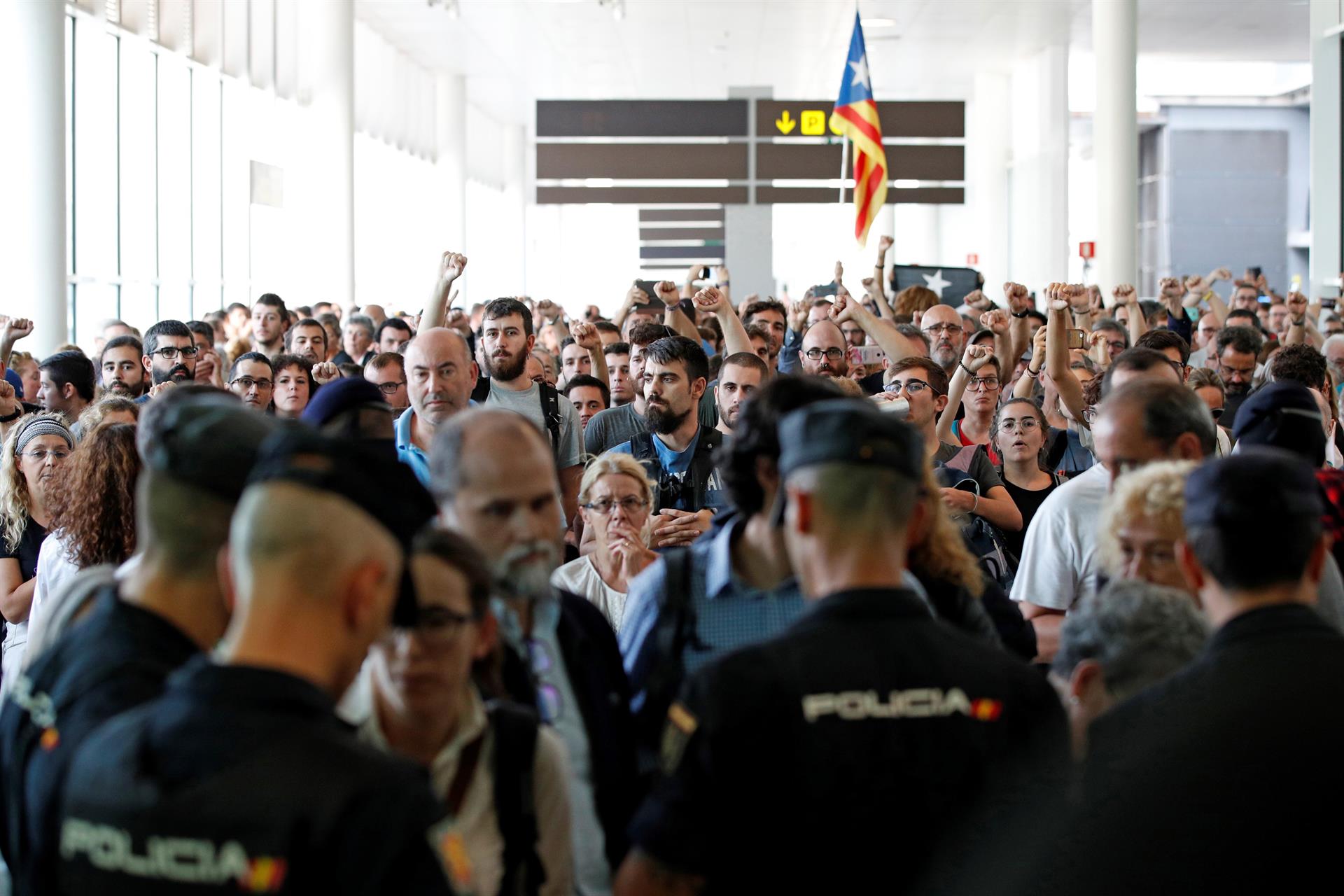No surprise. In a resolution communicated this Monday, Spain's National Audience court has rejected the appeal by prosecutors which asserted that in the case of the Democratic Tsunami protest platform the evidence supports a possible crime of public disorder and not one of terrorism - the latter option being the one originally asserted by judge Manuel García-Castellón. The free deliberation of the court's criminal chamber has, however, been affected by the Supreme Court's earlier decision that, as García-Castellón claims, there is evidence of terrorism, and for this reason the higher Spanish court has kept the investigation in its own hands, with regard to the two elected representatives accused in the case - the Catalan president in exile and MEP for Junts, Carles Puigdemont, and the Catalan deputy for ERC, Ruben Wagensberg.
The decision annnounced today is the culmination of a tactical move by judge García-Castellón, who, rather than waiting for this response from the National Audience on the Democratic Tsunami case, elevated it to the Supreme Court, which all other Spanish courts must obey, and which gave its response first. However, apart from the actual decision, the detail of the resolution released today is also quite critical of all those under investigation, especially Josep Lluís Alay, director of president Puigdemont's office.
In the resolution, the criminal chamber of the National Audience reproduces the arguments put forward by the Supreme Court, on February 29th, with the resolution in which it assumed the Tsunami case involving several crimes, including terrorism, against the two public representatives accused in the investigation, while the National Audience maintained its own competence to investigate the 10 defendants who were not partially protected by holding elected office. "With regard to the facts and indicative evidence of the crime of terrorism, there should be no doubt," the court concludes.
Courts of Catalonia
In addition to downgrading the case to public disorder, the prosecutor had asked the judge García-Castelló to send the Tsunami case to the ordinary courts in Catalonia, where the events took place. For example, to a court in the outlying Barcelona town of El Prat, for the massive protest at the nearby El Prat airport on October 14th, 2019, against the verdicts in the Catalan pro-independence leaders's trial. The defence lawyers in the case also made this same request, although they added that demonstrating is not a crime.
Evidence against Alay
The court also dismissed the appeal of Josep Lluis Alay, head of the president Puigdemont's office, defended by the lawyer Gonzalo Boye, in which he argued that there was no evidence - not even of an indicative type - that his client had had any criminally significant participation in the actions under investigation. The judges reject this, and maintain that the actions attributed to Alay, "are not those of a simple messenger to an assistant oblivious to the facts he deals with and the information he transmits". They add that "the scope of the actions carried out by Democratic Tsunami, recounted in the contested resolution, and Alay's described participation show how essential his participation was for the development of those."
Prospective investigation
Finally, the court also dismisses the appeal of one of the other 10 people under investigation, Marta Molina, defended by lawyer Marina Roig, in which she described the investigation procedures carried out by judge García-Castellón as "prospective". The chamber asserts that the resolution shows "the existence of victims and the possible use of instruments capable of causing serious material and personal damage, with numerous injuries and a National Police officer who was left unconscious" after a stone hit his head, which forced him to be transferred to a hospital. This serious injury, however, did not happen in the protests called by Tsunami, but rather in the riots in Plaça Urquinaona, days later.

